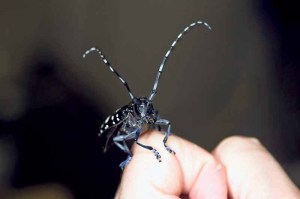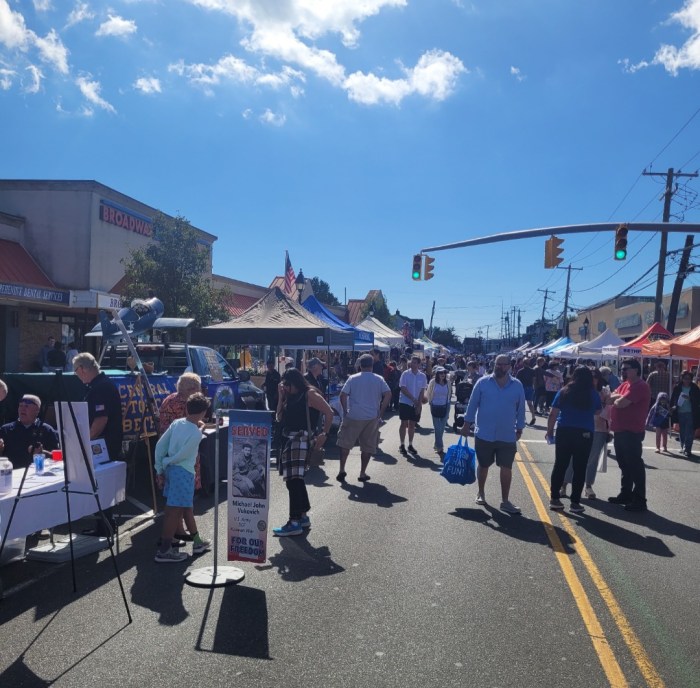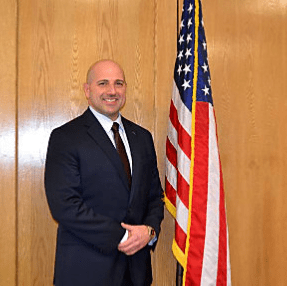
Oyster Bay Town Councilwoman Michele M. Johnson is asking residents to keep an eye out for the presence of destructive Asian long-horned beetles. Parts of the town—including significant portions of Massapequa, North Massapequa and Massapequa Park—are all under quarantine ever since these wood-boring pests were discovered in the area in 1996.
“Residents have been vigilant in alerting the town when Asian long-horned beetles are sighted,” said Johnson. “Their cooperation, combined with the Town’s efforts, has prevented beetles from infesting other areas. I am asking our residents to remain alert so we can cease the spread of these damaging bugs and continue to preserve the remaining trees in quarantined areas.”
Asian long-horned beetle have a very distinctive look. Each beetle is three-quarters to one and one-quarter inch long, and has a glossy black body with irregular white spots. Adult Asian long-horned beetles typically emerge from late spring until early October and threaten hardwood trees during the warm weather seasons.
A tree infested by Asian long-horned beetles can be identified by the damage done by the pests. The beetle’s preferred hosts are hardwood trees, including several maple species. When adult beetles have chewed their way out of the tree they create small holes usually accompanied by large piles of sawdust and oozing sap. If the infestation is severe enough, the damage caused by Asian long-horned beetles can weaken an infected tree’s integrity and eventually kill it.
Johnson said, “The town takes great pride in its tree resources, so much so, that we have been a ‘Tree City USA’ for the past 28 years.”
To report a sighting of an Asian long-horned beetle, residents should call the Asian Long-Horned Beetle Eradication Program at 1-866-265-0301.
—Submitted by the Town of Oyster Bay



























